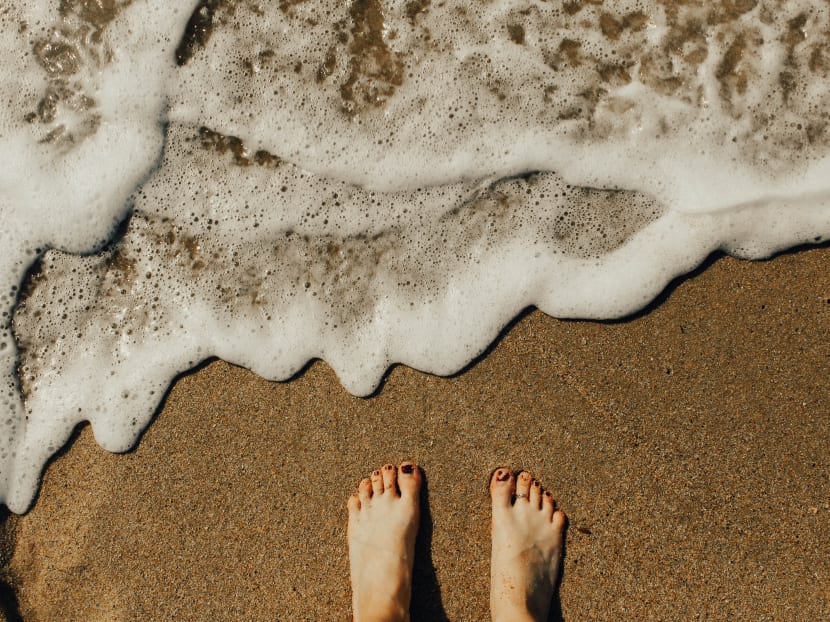Three reasons to take a holiday — especially a short one
What sort of break is best? Should we be thinking of long sabbaticals, or is it enough to keep evenings and weekends free? Perhaps the ideal compromise is Bridget Jones’s dream of a “full-blown mini-break holiday weekend”?
I know a man who used to deal with a stressful job, working 15-18 hour days in a senior role, by slipping away to a rented house near Richmond Park in London.
There, he refused to be interrupted by messages except during office hours, spent time playing bridge well and golf badly, and he ensured that the location of the hideaway was a well-kept secret.
The few colleagues who did visit were strictly banned from talking about work. Yet despite his apparently laid-back approach, this fellow got results.
To be clear, I know this person only by reputation; Dwight Eisenhower died before I was born. But this is how he responded to the burdens of being supreme allied forces commander during the second world war. He found it essential to take time off.
We would all like to feel that our work is essential and our personal contribution irreplaceable. But, as Alex Soojung-Kim Pang, author of Rest: Why You Get More Done When You Work Less, notes, we’re unlikely to be doing quite as essential a job as Eisenhower’s. If he benefited from some down time, so might we.
But what sort of break is best? Should we be thinking of long sabbaticals, or is it enough to keep evenings and weekends free? Perhaps the ideal compromise is Bridget Jones’s dream of a “full-blown mini-break holiday weekend”?
The simple answer is all of the above. There’s something fractal about rest: we need it daily, weekly and yearly. That said, my reading of the (slim) evidence is that if you can bear the cumulative expense and the travel time, frequent short breaks beat the occasional elongated vacation.
Reason one: Holiday memories tend to depend not on how long the holiday was, but on the intensity of the experiences.
What matters is not how long you went away, but just how exciting and differentthe most exciting and different moments were. The first day of a visit to somewhere new will typically be more memorable than the tenth.
Reason two: A change of activity can be a spur to creativity.
This need not be a long holiday; even an engaging hobby will do. Nobel Prize-winning scientists are much more likely to have serious arts and crafts hobbies than other scientists, who are in turn more likely to have serious hobbies than the rest of us.
Still, a holiday can help. Lin-Manuel Miranda was taking his first vacation for several years, at a resort in Mexico, when he read Ron Chernow’s biography of Alexander Hamilton, and was inspired to start working on what became the musical phenomenon, Hamilton.
“The moment my brain got a moment’s rest, Hamilton walked into it,” he explained.
Intriguingly, Hamilton is, among other things, a musical about the importance of taking proper holidays.
“Take a break,” sings Hamilton’s wife, Eliza to her workaholic husband.
“Run away with us for the summer, let’s go upstate.” Hamilton decides he needs to keep working instead and then makes sleep-deprived errors that led to his downfall.
Eisenhower’s aim in relaxing in his hideaway seems to have been to maintain his energy and good judgment. In short, he rested so that he could be a better general when he was working.
That leads us to reason three for taking a short break: If we need rest to prevent exhaustion, a single, long vacation won’t do the trick.
Jessica de Bloom of the University of Groningen has found that the recuperative effects of a vacation tend to wear off in just a few weeks. You can’t store up the benefits of a long holiday any more than you can sleep for 24 hours then stay awake and sharp for the rest of the week.
All this raises another question, though: What should we do while we’re taking a break? According to Mr Soojung-Kim Pang’s survey of the available research, the ideal break offers relaxation, control, mastery and mental detachment.
By relaxation he simply means something that requires little conscious effort — from a walk to watching television.
Control means autonomy over how you spend your time. Mastery refers to immersion in a challenging and absorbing task. An active holiday of skiing, sailing or rock climbing might do the trick — but so might a weekend of home improvements, assuming you’re better at putting up shelves than I am.
Finally there’s mental detachment — disconnecting from the responsibilities of the office. Such disconnection is harder than ever these days but it can help, even when the break is otherwise anything but relaxing.
Business trips can be exhausting yet even they have been found to reduce burnout and stress, because they provide a break from day-to-day responsibilities.
And one 1998 study — by Professors Dalia Etzion, Dov Eden and Yael Lapidot — discovered that men called up for active reserve duty in the Israeli army found that the experience provided the same relief from burnout and stress in their normal lives that a holiday would have done.
It’s not that serving in the army is relaxing but that it provides a sense of distance from the day job. Unless, of course, your day job is in the army. In that case I recommend that you emulate Ike and enjoy a game of golf or bridge. FINANCIAL TIMES
ABOUT THE AUTHOR:
Tim Harford writes the Undercover Economist column for the Financial Times, and was previously its economics leader writer. He is the author of seven books, including the million-selling The Undercover Economist.










